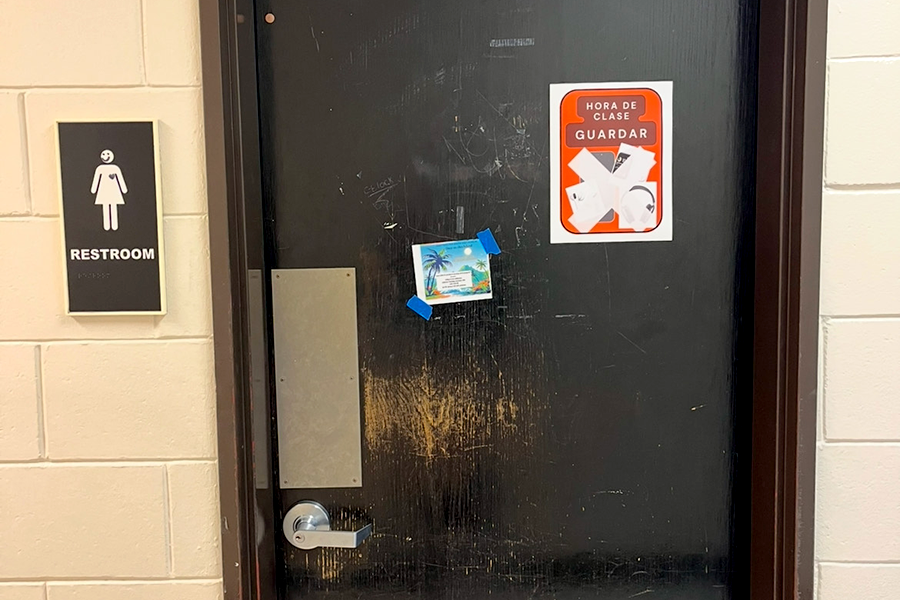Five years ago, October was designated “National Bullying Prevention Month” by the Parent Advocacy Coalition for Educational Rights (PACER) Center, an organization that serves families, especially those who have children with disabilities.
An estimated 160,000 students in the U.S. stay home from school each day because they fear being bullied. Bullying often is not thought of as a serious. However, bullying can have considerable effects on a student’s self esteem.
Why do people bully? According to freshman Jacob Doud, bullies “think they are more popular or stronger.” Freshman Maddi Kraft believes people bully because “they want to act tough.” School psychologist intern Jason Kurtz said bullying is caused by insecurity and a need to control others.
Bullying involves the use of intimidation and coercion. A bully often uses force to get others to do what they want. Examples of bullying include hazing, which is the process of having others do tasks that would embarrass them, being excluded from social groups, being teased or called names, or cyber bullying through Facebook or email.
A recent, devastating example of cyber bullying was the case of Tyler Clementi. Clementi, a freshman at Rutgers University, committed suicide by jumping off the George Washington Bridge after his roommate put pictures of him online that suggested he was gay.
Kraft is not very concerned with bullying. “There is not much bullying in South because people respect each other,” she said. Freshman Marie Nicolas agrees with Kraft. “I don’t think there is a lot of bullying.”
South High school psychologist Liz Rudrud said that bullying is increasing everywhere, so she assumes it is also increasing at South.
According to PACER, 25 percent of bullies will go on to have a criminal record. Six out of 10 teenagers in the U.S. witness bullying at least once per day, and 33% report experiencing bullying during the school year.
Kraft thinks there needs to be more talk about bullying and its consequences. Assistant principal Jean Webb-Bradford agrees with Kraft, saying South High teachers need to “continue to talk about South High behavior expectations.” Paul Lundin, who works in security at South, agrees that bullying awareness needs to be reinforced in classrooms and throughout the school.
What can be done to prevent bullying? Experts such as Julie Hertzog, director of PACER’s National Center for Bullying Prevention, say that the first step is to change people’s thinking that bullying is just part of growing up. Instead, Hertzog said, “It is unacceptable behavior that must be stopped.”
Bradford said that many students are afraid to tell others that they have been bullied. She suggests that students “tell an adult right away” if they are bullied. Another effort to stop bullying was the recent launch of a bullying prevention website established by PACER Center (http://www.pacerteensagainstbullying.org).








Mona Anderson • Oct 25, 2010 at 9:56 pm
Great article, Sam.